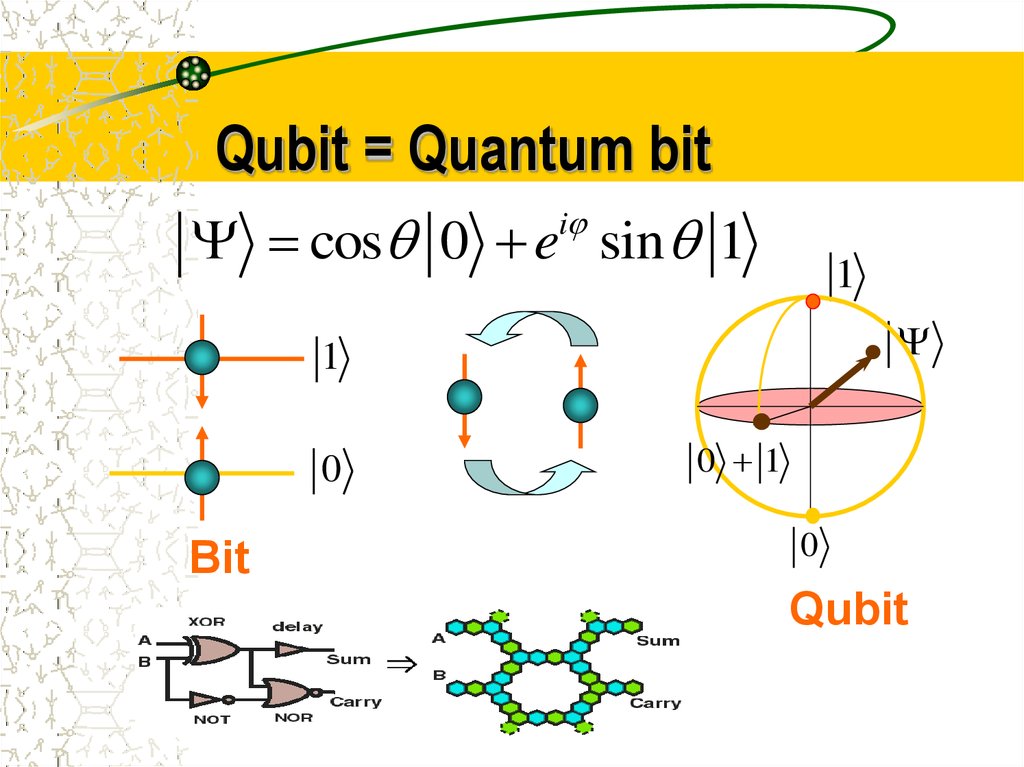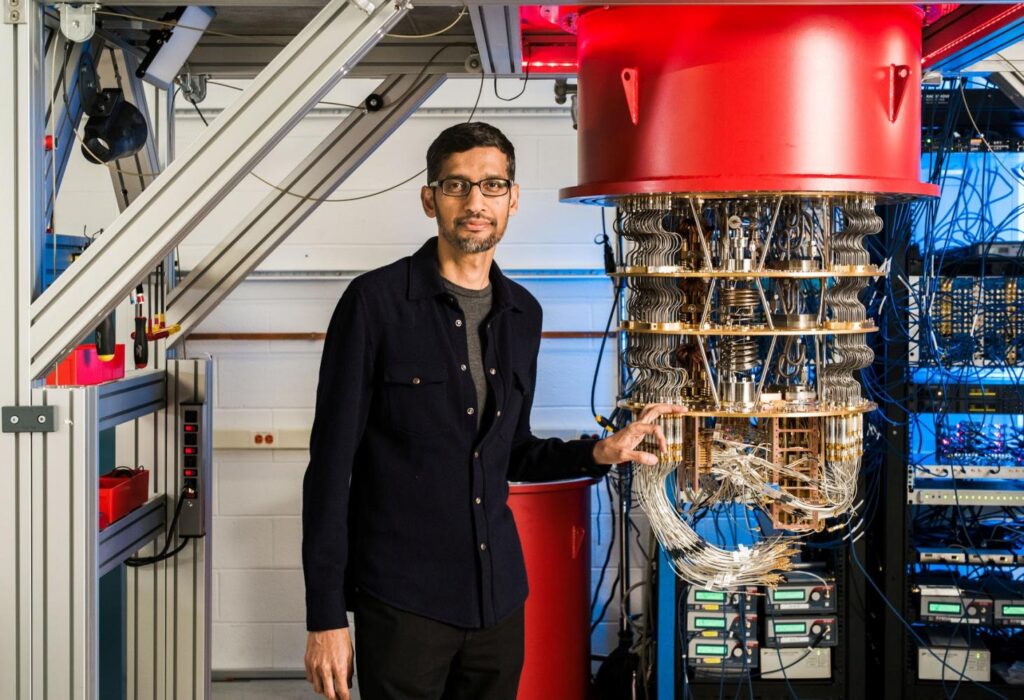Quantum Computing: Unleashing the Power of the Quantum Realm

Quantum computing is a rapidly evolving field that holds immense promise for solving complex problems and revolutionizing various industries. Harnessing the principles of quantum mechanics, this cutting-edge technology utilizes quantum bits, or qubits, to process and store information in a fundamentally different way than classical computers. In this article, we will delve into the fascinating world of quantum computing, exploring its principles, potential applications, and the challenges it faces.
Table of Contents
1. What is Quantum Computing?
Quantum computing is a branch of computer science that leverages the principles of quantum mechanics to perform computations. Unlike classical computers that use bits to represent information as zeros or ones, quantum computers use qubits that can exist in multiple states simultaneously, thanks to a phenomenon called superposition. This enables quantum computers to perform computations at an unprecedented speed and efficiency.
2. The Principles of Quantum Mechanics
Quantum mechanics is a fundamental theory in physics that describes the behavior of matter and energy at the smallest scales. It introduces concepts such as superposition, entanglement, and uncertainty, which are crucial for understanding quantum computing. Superposition allows qubits to exist in multiple states simultaneously, while entanglement enables the correlation of qubits, even when physically separated.
3. Quantum Bits: The Foundation of Quantum Computing
Quantum bits, or qubits, are the building blocks of quantum computers. While classical bits can represent either a 0 or a 1, qubits can exist in a superposition of both states simultaneously. This property exponentially increases the computational power of quantum computers, as each additional qubit doubles the number of possible states the system can represent.

4. Quantum Supremacy: Breaking Barriers
Quantum supremacy refers to the point at which a quantum computer can solve a problem that is infeasible for classical computers within a reasonable timeframe. Achieving quantum supremacy is a significant milestone in the development of quantum computing, demonstrating its potential to outperform classical computers in specific domains.
5. Applications of Quantum Computing
Quantum computing has the potential to revolutionize various fields by solving complex problems that are currently beyond the capabilities of classical computers. Some notable applications include:
5.1 Cryptography and Data Security
Quantum computers have the ability to break many of the cryptographic algorithms currently used to secure sensitive information. However, they also offer the potential for developing quantum-resistant encryption methods, ensuring the security of data in a post-quantum world.
5.2 Optimization and Logistics
Quantum algorithms excel in solving optimization problems, which are prevalent in areas such as supply chain management, transportation, and resource allocation. By leveraging the power of quantum computing, these processes can be optimized, leading to significant efficiency gains.
5.3 Drug Discovery and Material Science
Quantum simulations can greatly enhance the discovery and development of new drugs and materials. By modeling complex molecular interactions with high accuracy, quantum computers enable researchers to accelerate the discovery of new treatments and materials with desirable properties.
5.4 Machine Learning and Artificial Intelligence
Quantum machine learning algorithms hold the potential to revolutionize the field of artificial intelligence. By leveraging quantum properties, such as superposition and entanglement, quantum computers can perform complex computations that are vital for training and optimizing machine learning models.
6. Challenges in Quantum Computing
Despite its immense potential, quantum computing faces several challenges that need to be overcome for widespread adoption. Some of these challenges include:
6.1 Quantum Decoherence
Qubits are highly susceptible to environmental disturbances, leading to a loss of quantum information through a process known as decoherence. Extending the coherence time of qubits is a crucial challenge in developing reliable quantum computers.
6.2 Error Correction and Scalability
Building large-scale, error-tolerant quantum computers is a complex task. Error correction techniques need to be implemented to mitigate the impact of errors that arise due to decoherence and other factors. Additionally, scaling up the number of qubits while maintaining their coherence is a significant engineering challenge.
6.3 Resource Requirements
Quantum computations are resource-intensive, requiring a significant amount of physical resources, including specialized hardware and cryogenic systems to maintain low temperatures. Overcoming these resource constraints is essential for the practical implementation of quantum computing solutions.
7. Quantum Computing in the Real World
While quantum computers are still in their early stages of development, several organizations and research institutions are actively exploring their potential. Companies like IBM, Google, and Microsoft have already made significant strides in building functional quantum computers, and they are working towards making them more accessible to the broader scientific community.
8. The Future of Quantum Computing
The future of quantum computing looks promising. As researchers overcome technical challenges and refine quantum algorithms, we can expect to see exponential growth in the capabilities of quantum computers. This opens up vast opportunities for solving complex problems in fields such as cryptography, optimization, drug discovery, and more.
Conclusion
Quantum computing is poised to revolutionize the world as we know it. With the ability to perform computations exponentially faster than classical computers, it holds the key to solving some of humanity’s most pressing challenges.

While there are still hurdles to overcome, the progress made in quantum computing is remarkable, and we can anticipate remarkable advancements in the near future.
FAQs
What is the difference between classical and quantum computing?
- Classical computers use bits to represent information as zeros or ones, while quantum computers use qubits that can exist in multiple states simultaneously.
What is quantum supremacy?
- Quantum supremacy refers to the point at which a quantum computer can solve a problem that is infeasible for classical computers within a reasonable timeframe.
How can quantum computing impact cryptography?
- Quantum computers have the potential to break many of the cryptographic algorithms currently used, but they also offer the opportunity to develop quantum-resistant encryption methods.
What are the challenges in quantum computing?
- Some challenges in quantum computing include quantum decoherence, error correction, scalability, and the resource requirements for building and operating quantum computers.
What are the potential applications of quantum computing?
- Quantum computing can be applied to various fields such as cryptography, optimization, drug discovery, material science, and machine learning, among others.
***
Machine Learning books from this Author:




